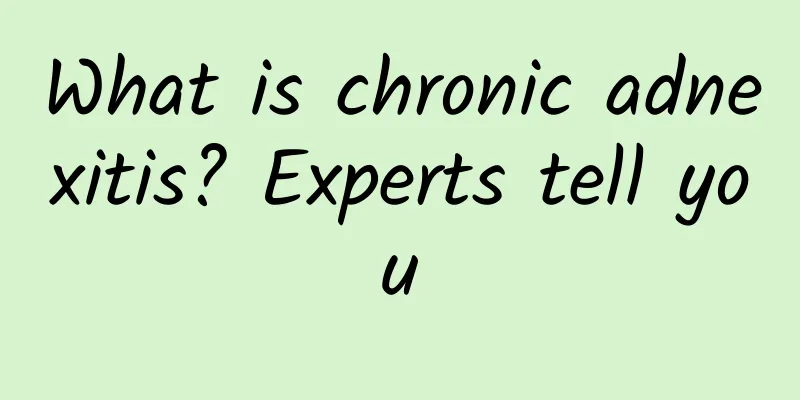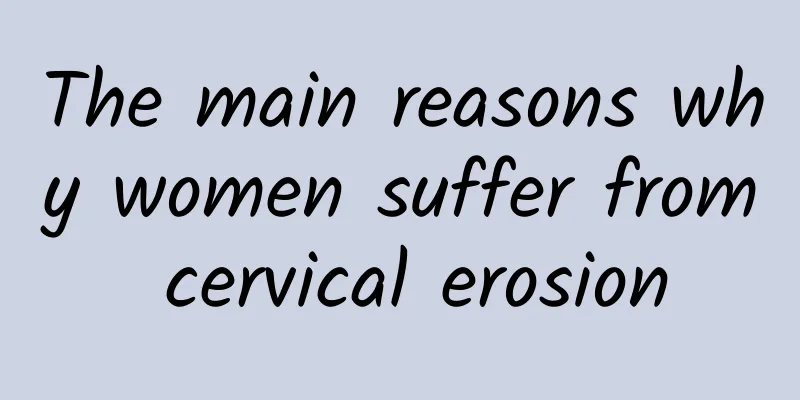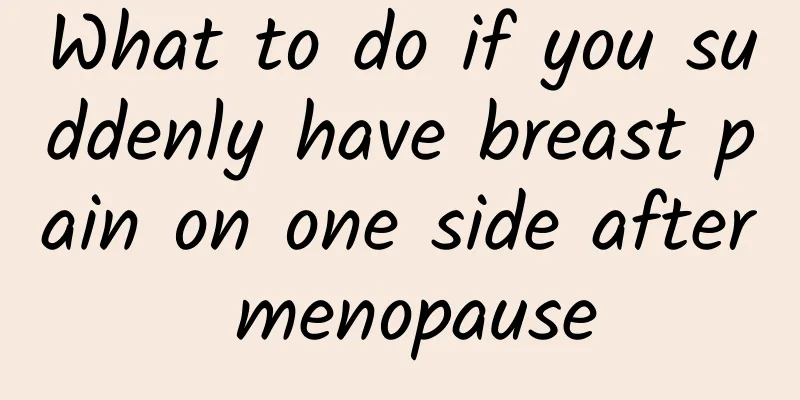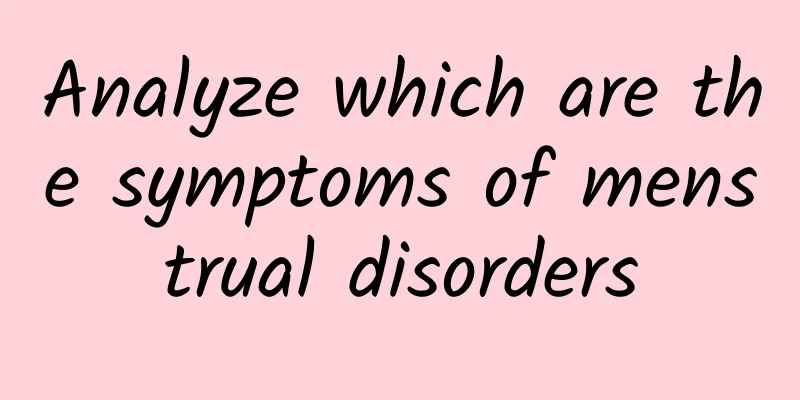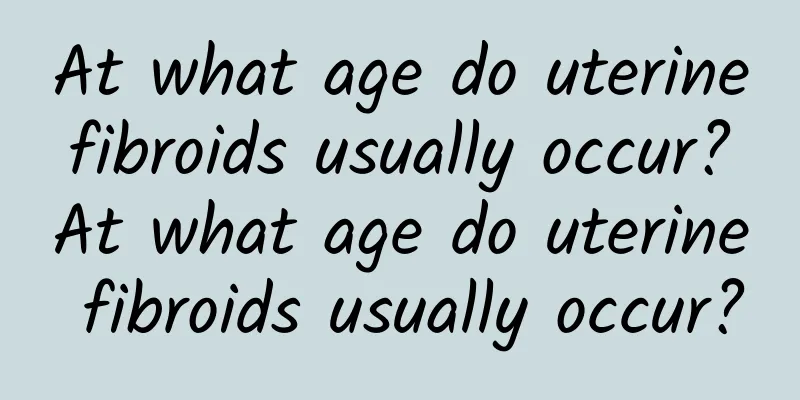What complications may soft ovarian cysts cause?
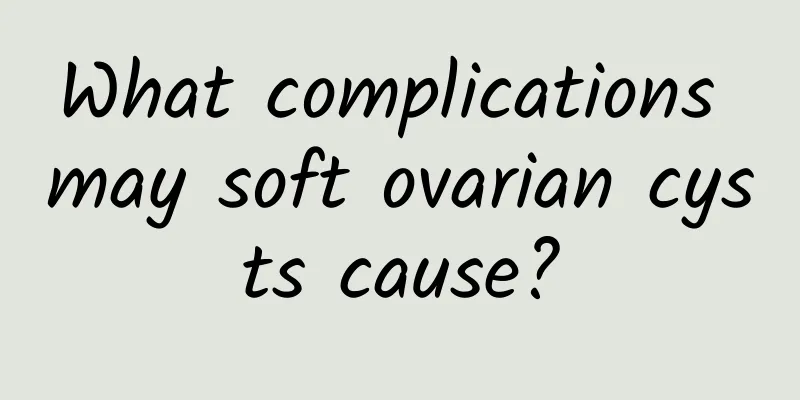
|
What complications are likely to be caused by soft ovarian cysts? Soft ovarian cysts are a common gynecological disease, which mainly occurs in the ovaries. If not treated in time, it is likely to cause other complications, thus endangering the patient's life. The following experts will introduce to you the symptoms of complications of ovarian cysts. 1. One of the complications of ovarian cysts is the malignant transformation of benign ovarian tumors, which often occurs in older women, especially postmenopausal women. The tumor grows rapidly in a short period of time, and the patient feels abdominal distension and loss of appetite. Examination shows that the tumor volume has increased significantly and is fixed, and there is often ascites. Suspected malignant transformation should be treated in a timely manner. 2. Pedicle torsion is a common complication of ovarian cysts. It is more common in cystic tumors with long pedicles, medium size, large mobility, and center of gravity biased to one side. It often occurs when the body position changes suddenly, in early pregnancy or after delivery. After the pedicle is torsion, the venous return of the tumor is blocked, causing congestion, purple-brown color, and even ruptured blood vessels and bleeding. Patients suddenly experience severe lower abdominal pain, which may be accompanied by nausea, vomiting, and even shock in severe cases. During the examination, the abdominal wall muscles on the affected side are tense, tenderness is significant, and the mass has greater tension. 3. A less common complication of ovarian cysts is infection, which is often secondary to tumor pedicle torsion or rupture. The main symptoms are fever, abdominal pain, elevated white blood cell count and varying degrees of peritonitis. Infection should be actively controlled and surgical exploration should be performed at an appropriate time. 4. Tumor rupture is a complication symptom of ovarian cyst. Traumatic rupture is caused by squeezing, delivery, gynecological examination and puncture. After rupture, the cyst fluid flows into the abdominal cavity, irritating the peritoneum, which can cause severe abdominal pain, nausea, vomiting, and even shock. During the examination, there are abdominal wall tension, tenderness, rebound pain and other abdominal irritation signs, and the original mass shrinks or disappears. After diagnosis, laparotomy should be performed immediately to remove the cyst and clean the peritoneum. The above is an introduction to the symptoms of complications of ovarian cysts. Experts point out that ovarian cysts are not terrible, they are preventable and curable. Early detection of ovarian cysts will have better results after cure. Therefore, do not wait until you have symptoms before going to the hospital. If you have other questions, please consult our online experts or call for consultation. Ovarian cysts http://www..com.cn/fuke/ncnn/ |
<<: Why do ovarian cysts occur?
>>: What are the causes of vulvar leukoplakia?
Recommend
Different medications are used for bacterial vaginosis at different stages
Bacterial vaginosis is a common disease among wom...
Can a small amount of pelvic effusion heal itself? How to treat pelvic effusion?
Nowadays, many women live in a fast-paced environ...
How should I maintain my health after painless abortion surgery?
Painless abortion is a common operation in many h...
How to use medication in the early stage of hyperprolactinemia
Many girls have heard of hyperprolactinemia, a co...
Who are the most susceptible groups to bacterial vaginosis? These groups of people should pay attention
Women who have too frequent sex, have decreased i...
Constipation accelerates aging! 7 tips to say goodbye to constipation
There are many reasons why people usually have a ...
Tips for pelvic inflammatory disease care
The care of pelvic inflammatory disease is an ext...
Don’t be afraid of getting fat when eating hot pot~ Choose the soup base and ingredients, and don’t eat fat with 4 principles
The temperature has dropped suddenly, and it is t...
Don’t touch the green sauce! Eat pasta like this to lose weight
Many people are afraid of getting fat and dare no...
How to do daily care for patients with pelvic peritonitis
We should pay attention to the disease of pelvic ...
Stay away from cervicitis and start by understanding the symptoms.
Cervicitis is a common gynecological disease that...
What should women eat after abortion? You can use these recipes to regulate your body after abortion
Sophora japonica and Job's tears porridge (Po...
6 ways to slim your legs and smooth out those annoying calf muscles
[Key Points]: To slim down your calves, you must ...
Why do women experience sudden cessation of menstruation?
Ms. Wang, 30 years old, has been amenorrhea for a...
Allergies flare up during seasonal changes? 4 major nutrients to protect your skin! Nutritionist: Stay away from these three ingredients that can cause chronic allergies
Do you keep sneezing, have dry and itchy skin, an...
